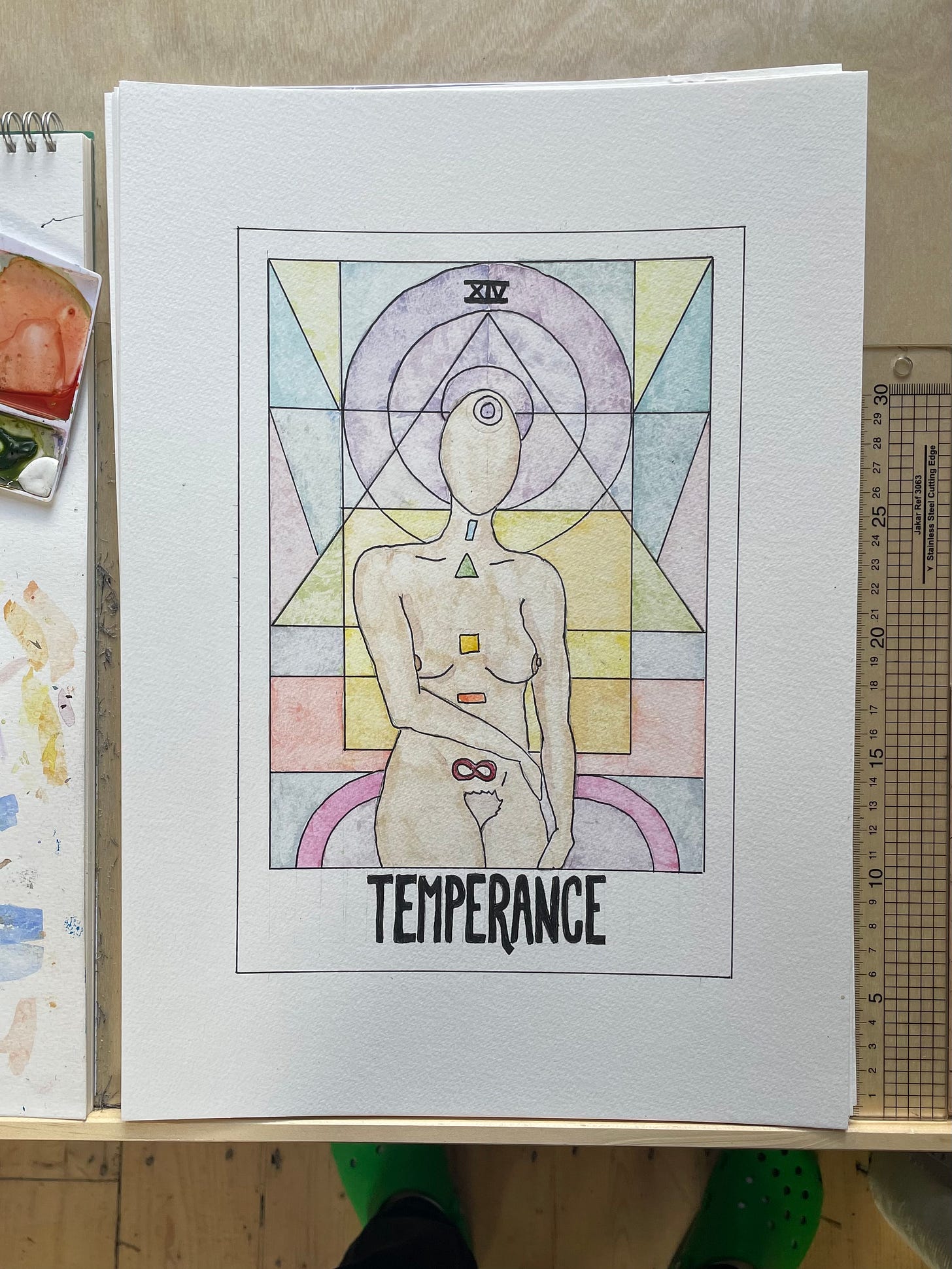The Tarot of Songwriting 14 - Temperance
David Lynch, routine, and The Malice of Objects
If you want to know how I am doing, you need look no further than my living room - is the furniture in the same position as last time you saw it? No, of course it’s not. My cleaner thinks I’m a psychopath. “Every time, change!” says lovely Polish Anna every other week, whose lack of English gives her a directness I find oddly comforting. “ but still no …




